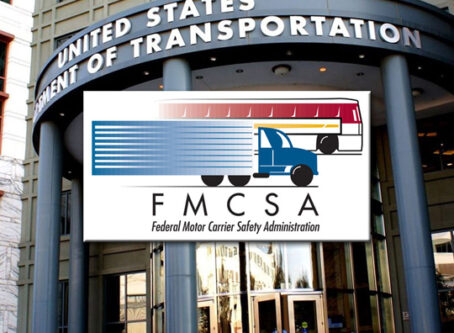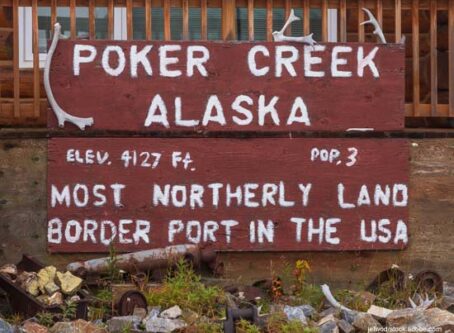Bills in five states would provide towing reform
Unfair towing is the topic of legislation under review in multiple statehouses.
Rule changes being pursued in at least five state legislatures are touted to establish basic consumer protections from predatory towing for truck drivers and motor carriers.
The Owner-Operator Independent Drivers Association has spent years working with states to establish regulations to protect truck drivers involved in a nonconsensual tow.
Since the trucker is not able to check the price of the towing service, OOIDA points out the trucker is at the mercy of the towing company when it comes to the cost.
Florida
The Florida House could soon take up for a final vote legislation that is intended to address concerns about predatory towing practices in the state.
The National Insurance Crime Bureau reports the state is notorious for the practice.
Florida has no statewide maximum rates for towing or storage. State law requires maximum rates to be set by each county. Cities are permitted to set maximum rates, in which case county rates do not apply. Maximum rates set by the Florida Highway Patrol apply when troopers call for a tow, unless the county or city has established rates.
Towing operators are permitted to claim a lien on motor vehicles for specified fees. Statute provides a process for foreclosing on such lien if fees remain unpaid.
Sponsored by Rep. Melony Bell, R-Fort Meade, HB179 would make multiple revisions to towing statute.
The bill would require counties to establish maximum rates that towers may charge for cleanup and disposal of hazardous and nonhazardous materials incidental to a nonconsensual tow. Cities also would be permitted to enact such rates.
Rates would be required to be posted online. Counties, cities and the Florida Highway Patrol would be mandated to establish a process for investigating and resolving complaints regarding fees charged in excess of such rates.
Additionally, a towing operator must allow inspection and release of the vehicle within one hour after the owner, lienholder, insurance company representative or agent provides specified documents during normal business hours at the site where the vehicle is stored.
“I want to make clear we have some great towers in the state of Florida. Yes, there are some bad actors. That’s why I’m here … we have to help our consumers,” Bell said during a recent committee hearing.
If approved by the House, HB179 would head to the Senate.
Kentucky
A Kentucky bill includes language to address towing.
SB107 would require towing companies to submit their current rate sheets to all local law enforcement agencies in the company’s service area.
Local law enforcement agencies would be directed to remove companies that do not comply with requirements from their wrecker log for a period of six months. Repeat offenders would face a one-year removal period.
The Senate voted unanimously to send the bill to the House for further consideration.
Mississippi
Two Mississippi bills seek to address concern about nonconsensual towing of commercial vehicles.
HB1622 and SB2635 would establish a commercial vehicle towing advisory committee. The panel would establish regulations for towing and recovery service providers.
A resolution process also would be set up for truck owners who dispute the amount of towing and recovery fees and charges. Additionally, the seven-member advisory committee would be responsible to provide towing rates based on certain standards.
Disciplinary action against towing and recovery service providers also would be established.
Missouri
In Missouri, a House bill would permit truck drivers to file a complaint if they believe they were overcharged for a nonconsensual tow.
State law does not allow trucking operators who believe they were overcharged for a nonconsensual tow to file a complaint.
Rep. Dave Griffith, R-Jefferson City, is behind a bill that is intended to help truck operations of all sizes address the issue.
HB2214 includes a provision to give greater protection and recourse for third parties. Specifically, a company holding or storing property would be permitted to require the owner to complete documentation showing the property was released to the owner. A requirement also would be included to provide an itemized receipt for the property.
In addition, owners of goods transported in affected trucks would be permitted to file a petition in circuit court asserting that the property was unjustly taken or withheld.
Another provision would require security for release of a commercial vehicle from possession of a towing company to be 30% of the charges for towing and storage.
Supporters contend the bill would ensure that individuals do not get taken advantage of with burdensome or unreasonable charges for vehicles being towed when there is otherwise no recourse available.
Doug Morris, OOIDA director of state government affairs, said the bill is common-sense legislation under consideration by many other states that do not already have non-consensual legislation on the books.
Virginia
Two similar bills nearing completion at the Virginia statehouse are intended to protect the public from predatory towing. Specifically, the legislation would prohibit solicitation of towing.
Sen. Bill Stanley, R-Franklin, said his bill addresses a specific problem occurring throughout the state.
“You have tow truck companies that are using paramedics, first responders that respond to accidents or disabled vehicles, or trucks on the side of the road,” Stanley testified at a recent hearing. “(Tow companies) talk to these first responders and say if they provide their business card and it results in a tow that (the first responder) will get a kick-back.”
His bill, SB94, would prohibit tow truck drivers and towing and recovery operators from solicitation or offering tow services in any manner, directly or indirectly, at the scene of any wrecked or disabled vehicle on a highway.
Violators would face up to $500 fines.
Another bill, HB1073, would prohibit tow truck drivers from driving by the scene of a wrecked or disabled vehicle and initiating contact with the owner or operator of such vehicle by soliciting or offering towing services, and towing such vehicle, if the affected vehicle has a law-enforcement-initiated tow.
Maryland State Police Major Ron Maxey spoke at a recent hearing on the bill. He said HB1073 is intended to address situations when an officer calls for a tow or a vehicle owner or operator requests a specific tow service, and before the requested tow service arrives, the officer is dispatched to another call that requires them to leave the scene.
“This would prevent another vehicle from coming in and taking that vehicle out from underneath the police-requested tow,” Maxey said.
Both bills have cleared the statehouse and next head to the governor’s desk. LL









